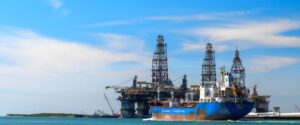
In a significant shift in energy policy, Canada has launched its first operating liquefied natural gas (LNG) export terminal, LNG Canada, marking a new chapter in the country’s relationship with fossil fuels. The inaugural shipment from the Kitimat-based facility signals a potential warming of ties between Canada’s abundant energy resources and global markets, particularly in Asia.
The announcement comes as a stark contrast to the stance taken by Canada’s former resource minister, Jonathan Wilkinson, who in March 2024 declared, “We are not interested in investing in LNG facilities.” This statement was made against a backdrop of federal governments that were vocal opponents of the oil and gas industry, despite Canada being home to some of the world’s most abundant hydrocarbon resources.
Policy Shifts and Economic Implications
Under the leadership of Prime Minister Justin Trudeau, Canada had tightened regulations on the oil and gas sector, imposing stringent emission-related requirements and increasing bureaucratic hurdles for expansion. The Trudeau administration prioritized reducing carbon emissions, often at the expense of the fossil fuel industry.
However, the recent developments with LNG Canada suggest a pivot in strategy under the new leadership of Prime Minister Mark Carney. Carney has publicly embraced a more inclusive energy policy, aiming to transform Canada into an energy superpower. This shift is partly in response to external economic pressures, including trade disruptions caused by U.S. tariffs.
Strategic Market Positioning
The choice to target the Asian energy market is strategic, driven by two primary factors. Firstly, Canada’s west coast proximity to Asia reduces transportation costs, offering a competitive price advantage. Secondly, Canadian natural gas is currently trading at lower prices compared to U.S. gas, enhancing its appeal to international buyers.
Mitsubishi Corporation, a key partner in the LNG Canada project, expressed optimism about the venture. A senior executive stated to the Financial Times, “Mitsubishi Corporation strongly believes that further development of LNG Canada is an optimal option to explore.” This sentiment aligns with Carney’s vision of diversifying Canada’s trade and enhancing its long-term competitiveness.
Challenges and Criticisms
Despite the positive outlook, the shift in policy has not been without its critics. Net-zero advocates argue that the global demand for LNG does not justify increased capacity, citing concerns over potential overcapacity and environmental impact. Furthermore, the carbon tax, a contentious issue, remains in place for companies, despite being paused for households.
Infrastructure challenges also pose significant hurdles for further LNG growth in Canada. The high costs associated with developing new facilities could deter investment unless there is sufficient market demand to justify these expenses. As Tim Hodgson, Canada’s energy minister, noted, “These [LNG] projects are part of our broader strategy to protect Canada’s energy security, diversify our trade, and enhance our long-term competitiveness, all while building the most reliable, low-carbon energy possible.”
Future Prospects
Looking ahead, the success of LNG Canada could pave the way for additional export facilities, provided market conditions remain favorable. The private sector’s role in assessing the business case and making necessary investments will be crucial in determining the future landscape of Canada’s energy exports.
While the federal government’s narrative may be evolving, the underlying realities of energy demand and economic pressures continue to shape policy decisions. As Carney himself once noted in a 2021 publication, achieving global climate targets would require leaving a significant portion of fossil fuel reserves untapped. Yet, the current trajectory suggests a more pragmatic approach, balancing environmental goals with economic opportunities.
Ultimately, the market will have the final say. If demand justifies the costs, Canada could see a burgeoning LNG export industry, challenging net-zero advocates to adapt to a changing energy landscape.







